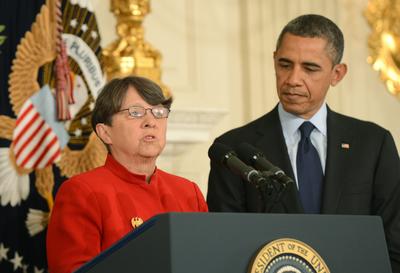Chinese companies have flooded US stock markets over the past decade, as China’s immature financial markets were unable to meet the capital needs of its rapidly growing entrepreneurial sector. Many of these companies faced allegations of fraud and malfeasance, leading to numerous attacks by short-selling research firms. The SEC’s efforts to investigate alleged frauds and the Public Company Accounting Oversight Board’s (PCAOB) move to inspect the work of auditors met resistance from Chinese regulators who considered allowing foreign regulators to enforce foreign law against Chinese persons on Chinese soil to be an unacceptable impingement on its national sovereignty.
Stymied in its efforts to obtain access to the people and records of alleged frauds, the SEC turned to the auditors. The Sarbanes-Oxley Act required auditors to cooperate with the SEC, and the SEC requested that they turn over the working papers that were created as part of the audit process. The auditors refused, citing Chinese regulations they said forbid them from sharing working papers with foreign regulators. The restrictions on sharing working papers with foreign regulators were rooted in China’s vague — but expansive — restrictions on disclosure of state secrets. In December 2012, the SEC brought administrative charges against the Chinese members of the Big Four firms, together with a local member firm of BDO. In a strongly worded 112-page decision, the judge imposed a six-month ban on the Big Four practicing before the SEC. BDO’s member firm was only admonished, mainly because it has withdrawn from the market.
The PCAOB was formed by the Sarbanes-Oxley Act to regulate auditors of US-listed companies. Central to the PCOAB’s function is the inspection of auditors to ascertain whether they are following the auditing standards that the PCAOB have set. China has blocked the PCAOB from conducting inspections of Chinese accounting firms, including the Chinese member firms of the Big Four, on grounds of national sovereignty. Instead, China wants the US to follow the practice of the EU and grant regulatory equivalency, which would allow US regulators to treat the work of Chinese regulators as if it were their own. The SEC and PCAOB do not recognise regulatory equivalency. The PCAOB offered to conduct inspections jointly with Chinese regulators, which the Chinese have rejected.
There was a breakthrough in US–China regulatory relations in May 2013 when the PCAOB reached a memorandum of understanding (MOU) with Chinese regulators to share documents in connection with the PCAOB’s investigations. Investigations are a small part of the work of the PCAOB, which focuses primarily on inspections. No progress was made in allowing the PCAOB to commence its core function of inspections. The MOU also restricted the PCAOB’s ability to share documents it obtained with the SEC. Audit documents began to flow to the PCAOB and the SEC following the MOU, although they were subject to an extensive redaction process to make certain that no state secrets were disclosed. The PCAOB has continued negotiations to obtain access for inspections. For the SEC, the MOU did not fill its need for unfettered access to source documents in order to enforce US securities laws.
The Big Four have announced their intent to appeal the decision, which is likely to indefinitely delay its implementation. Meanwhile, members of the PCAOB have indicated they cannot negotiate forever on access for inspections. Absent a breakthrough, there is a risk that Chinese auditors, including the Chinese member firms of the Big Four will be banned from auditing US-listed companies. That would likely lead to Chinese companies being kicked off of US exchanges and could cause serious difficulties for multinational corporations with significant Chinese operations.
A solution to this crisis is only likely through diplomacy. Regulators on both the US and Chinese sides have probably made all of the concessions they are able to make. China’s leaders need to decide whether they wish that Chinese companies could continue to access US capital markets. Longer term, China’s own domestic capital markets will be best suited to meet the capital needs of China’s private sector. But those markets need another decade to develop before they will have the depth and expertise to do this, and in the interim Chinese companies will need to continue to tap foreign capital markets. Agreeing to foreign regulation as a condition of access to foreign markets should not be considered an affront to national sovereignty.
Paul Gillis is Professor of Accounting at the Guanghua School of Management, Peking University.

